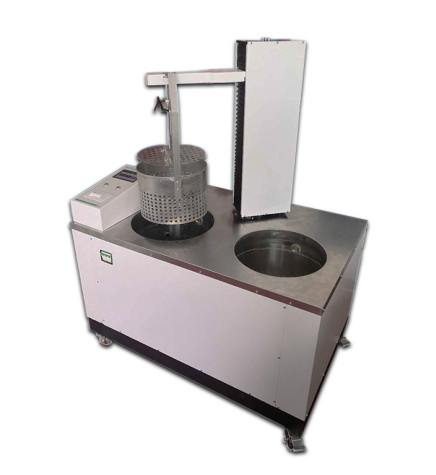Glass bottles are a ubiquitous part of our daily lives, used to store a wide range of beverages and liquids. Whether it's your favorite soda, a fine wine, or essential oils, these bottles play a vital role in preserving and protecting their contents. However, the durability of glass bottles is a crucial factor that manufacturers must consider to ensure their products can withstand various environmental conditions. One essential aspect of assessing glass bottle durability is thermal shock resistance testing, a process that evaluates their ability to withstand sudden temperature changes.

Thermal shock resistance testing is a specialized evaluation process used to determine how well glass bottles can handle rapid and extreme temperature fluctuations without shattering or cracking. This type of testing is essential because glass, while inherently strong, can be sensitive to sudden changes in temperature. Thermal shock resistance testing helps manufacturers assess and improve the resilience of their glass bottles, ensuring they can withstand the rigors of transportation, storage, and everyday use.

The Process of Thermal Shock Resistance Testing
Sample Preparation: The first step in the testing process involves selecting a representative sample of glass bottles from the production batch. These bottles are carefully inspected to ensure they meet the required specifications and standards.
Temperature Cycling: The selected glass bottles are subjected to a controlled series of temperature changes. This involves rapidly exposing the bottles to extreme temperature variations, often ranging from hot to cold or vice versa. The speed and magnitude of these temperature changes mimic real-world scenarios that glass bottles might encounter during their lifecycle.
Observation and Evaluation: During and after the temperature cycling process, the bottles are closely monitored for any signs of damage, such as cracks, fractures, or breaks. The testing equipment used in this process is highly sensitive and can detect even minor defects.
Pass/Fail Criteria: The bottles are evaluated based on predefined pass/fail criteria. If a bottle withstands the temperature cycling without exhibiting any significant damage, it is considered to have passed the thermal shock resistance test. Otherwise, it fails the test, and the manufacturer may need to make design or production adjustments.
Importance of Thermal Shock Resistance Testing
Ensuring Product Integrity: Glass bottles are often used for beverages and substances that are sensitive to temperature changes. Ensuring their thermal shock resistance is crucial to prevent leaks or spoilage of the contents.
Reducing Breakage: By identifying weaknesses in the glass bottle's design or production, manufacturers can take steps to reduce the risk of breakage during transportation and handling.
Enhancing Customer Satisfaction: Products that can withstand the rigors of everyday use are more likely to satisfy customers. A glass bottle that doesn't break easily is a safer and more reliable choice.
Compliance with Standards: Many industries and regulatory bodies have strict standards for glass bottle durability. Thermal shock resistance testing helps manufacturers meet these standards and maintain product quality.
Thermal shock resistance testing is a vital step in ensuring the durability and reliability of glass bottles used in various industries. By subjecting these bottles to extreme temperature fluctuations, manufacturers can identify weaknesses in design or production and make necessary improvements. Ultimately, this process contributes to the production of glass bottles that are less likely to break or shatter, enhancing product quality, customer satisfaction, and safety.